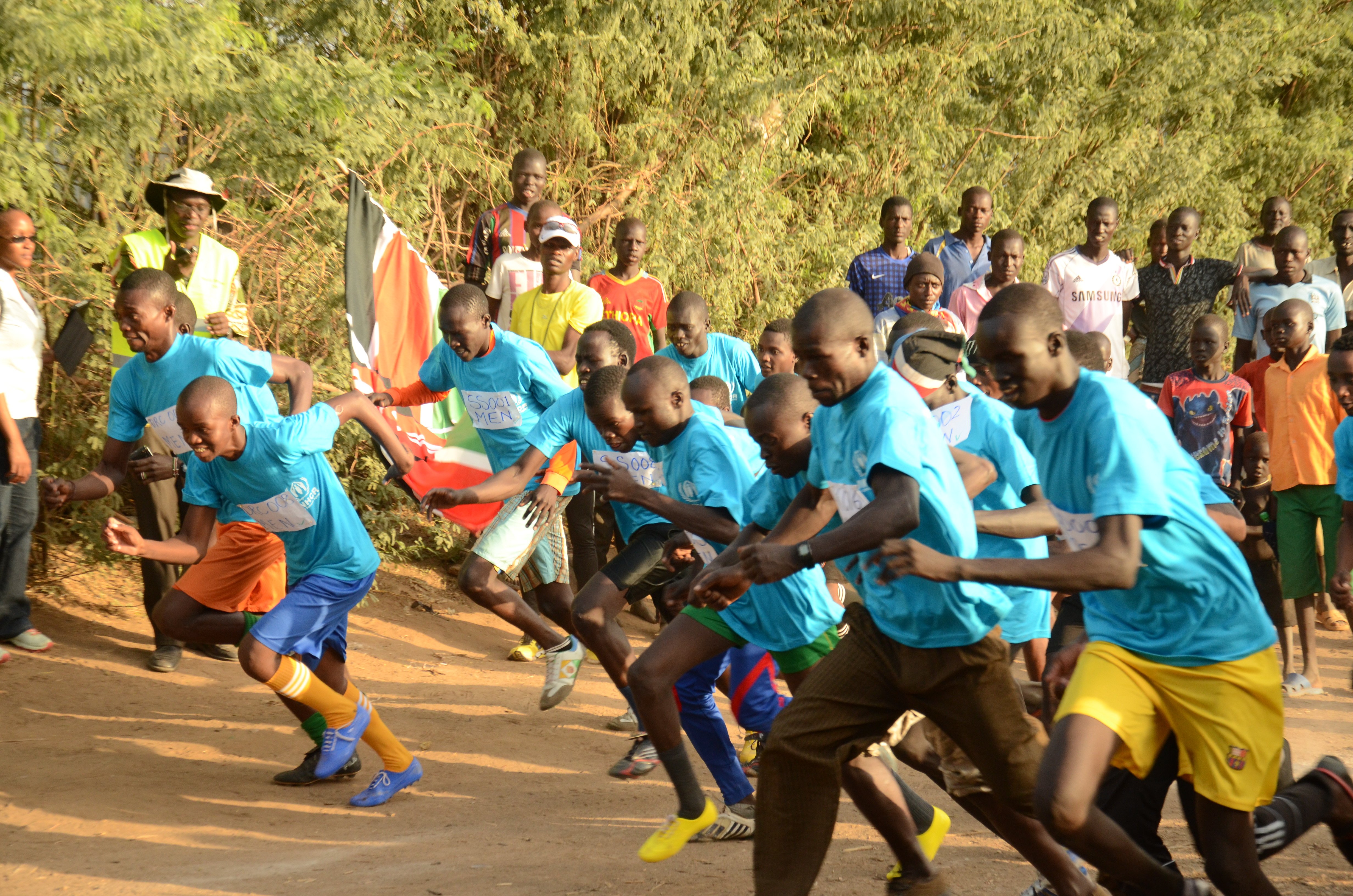UNHCR urges festival campers to think of real refugees' plight
UNHCR urges festival campers to think of real refugees' plight

GLASTONBURY, United Kingdom, June 28 (UNHCR) - Last weekend, UNHCR set up camp at the three-day Glastonbury music event in the south of England, Europe's largest open air festival, in an effort to reach out to the public.
Festival aid came in the form of beach balls in UNHCR blue, and kids clubs relieved tired parents for an hour or two. But the real message was much more serious: instead of distributing blankets and water, UNHCR handed out a Camp Challenge - a pop quiz that draws comparisons between camping at Glastonbury and living in a real refugee camp.
"It is hard for many of us to imagine the hardships faced by refugees even after they have reached places of relative safety," said Larry Hollingworth, UNHCR spokesman in London. "Glastonbury provides an ideal platform for raising awareness of refugee issues because it is the closest that most British people will get to a refugee camp. We hope that this will make them more sympathetic to the plight of those who are currently being forced to camp in more life-threatening conditions."
"The contrast is striking," adds Hollingworth. "At worst, Glastonbury-goers are escaping a dull job, but refugees are fleeing for their lives. Whereas revellers can go home after three days, refugees often face an uncertain future with no home to go back to."
This was UNHCR's second trip to Glastonbury. Building on the success of its first ever "Camp Challenge" last year, this year UNHCR aimed to focus people's minds on the current emergency in Chad.
Described as "the worst humanitarian crisis in the world", tens of thousands of refugees have fled the conflict in the Darfur region of Sudan to the remote desert of eastern Chad. It is one of the most hostile environments that UNHCR has ever had to operate in. The agency is rushing to relocate refugees away from the insecure Chad-Sudan border before the seasonal rains make getting people out and aid in almost impossible. So far, more than 110,000 refugees have been moved to relative safety and 1,700 tonnes of aid have been flown in.
While the weather forecast predicted a wet, windy and muddy few days for Glastonbury-goers, in Chad rain will mean much more than a soggy sleeping bag. When the rains start to fall, the weak temporary structures in the makeshift shelters will be in danger of collapsing. There will also be increased risks of disease.
UNHCR's presence at Glastonbury last year came after an opinion poll that found young people are less understanding and more hostile towards refugees than the public as a whole. Nearly one-quarter of 15 to 24-year-olds believed Britain had no obligation to offer a safe haven to people fleeing persecution.
"Many young people lack information about the facts behind the global refugee situation. UNHCR is keen to open people's eyes," said Hollingworth. "Music can cut across boundaries and open minds. We hope that young people will be encouraged to think more about the needs of people whose lives have been devastated as a result of conflict."
An annual event which attracts 150,000 revellers and combines diverse musical performances with the promotion of a number of humanitarian causes, Glastonbury rounds off UNHCR's Refugee Week celebrations in the United Kingdom.
Refugee Week UK now falls around World Refugee Day (June 20) each year, but has been commemorated in the UK since the late 1990s. Organised by UNHCR and partner agencies including the Refugee Council, Amnesty and Save the Children, the week is a celebration of the positive contribution refugees make in the UK and promotes tolerance through arts, cultural and educational events.
Refugee Week UK was launched on June 13 with "Celebrating Sanctuary", a free sun-filled afternoon of music, dance and visual arts by refugee artists from around the world at a festival held on the south bank of the Thames, London.
Over the course of the week, over 200 events took place nationwide - everything from the first ever Refugee Film Festival (featuring animation by young refugees alongside prize-winning films such as "In This World") to football tournaments and fashion shows.
The Week also had a more serious side, focusing on the global causes of refugee flows. A Refugee Week report released last week, "Fleeing the fighting: How conflict drives the search for asylum", revealed how three out of four applications for asylum in Britain are made by people from countries in conflict. It tells how conflict causes people to flee their homes, friends and family to seek sanctuary in other countries, including the UK.





